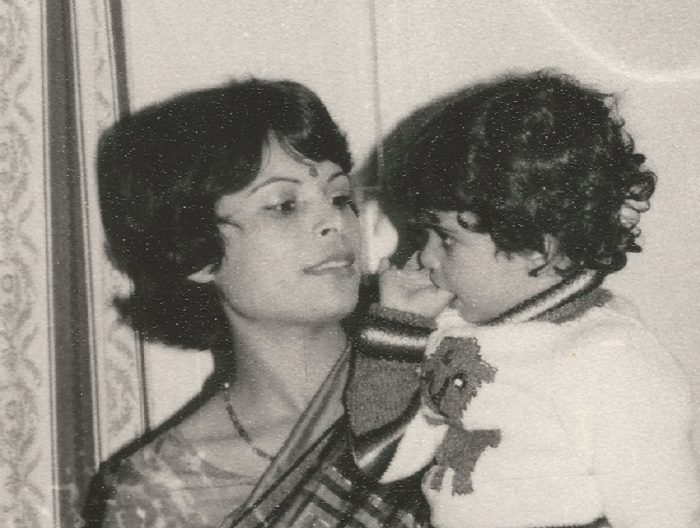“A mother is not a person to lean on, but a person to make leaning unnecessary.”
This quote, by Dorothy Canfield Fisher, isn’t the warmest way to appreciate a mother’s role in our lives, but among all the poetic expressions of love for mothers, I find this to be the most powerful and true.
Hovering at the cut-off age for motherhood, I am often offered well-intentioned advice about considering it with no further delay, along with information about various possibilities enabled by scientific advancements and progressive mindsets.
Single, no partner yet? Still making it up the professional ladder? Not ready to give up the untethered lifestyle? There are provisions for all scenarios, I am told. But my blunt response throws many off-balance.
I don’t want children, biological or adopted.
I’ve never felt the need to explain my decision, which is shaped by a multitude of factors. However, sometimes I ponder how my mother has played a subtle yet major role in this decision.
The way my mother raised me and her parenting skills are exactly the reasons I don’t want children.
Because I know I can never be as good a mother as she is.
The more I experience life and people, across cultures and generations, the more admiration I have for my mom. And the more blessed I feel to have been raised by her.
I love my life, have no regrets, and look forward to all the future has to offer. This self-assured attitude comes directly from my mother’s confidence in her (together with my dad’s) parenting skills: “We’ve given you tools to lead a good life, so I know you’ll make it out there just fine.”
I’m not a mother, yet as I examine my life, I notice how it continues to be shaped by not just my mother’s parenting skills, but by her influence as an amazing human being herself.
Here are the tools that I believe make a great parent, as demonstrated by my mother:
1. Striking a balance between being a friend and a parent.
I was an extremely shy child and had no friends for most of my younger years. My mother decided to be my friend. In my teenager years, she continued that friendship, mostly to look out for me. But she kept her roles—as a friend and a parent—distinct. And that was good because a child can make new friends, but we only have one set of parents.
2. Discipline is good. In fact, it’s necessary (especially these days).
My mom is a school principal; this definitely spilled over into her parenting skills and I’m glad it did. She imbued in me a lifelong sense of discipline, which is an important life skill to have to successfully navigate the vagaries of life. It made my brother and I well-mannered human beings, which is the least we should be.
3. Having your kid’s back, unconditionally.
My mother would always say, “Whatever your secret is, even if it is your worst mistake, you can always come back and tell me.” She never tried to convince me why this was a good idea, but she was able to reaffirm it every now and then. It has given me the unwavering trust that I am never alone—not in my worst times, not in far away places. And that all will be okay.
4. Finding a work-life balance.
I would like to say that this doesn’t exist, but she made it happen. To do so she had to make sacrifices in her career and her personal life, too. Life happens and everyone has stuff to do, but I saw her make us her top priority. I don’t know if I am willing to make those sorts of adjustments.
5. Being her own person.
She made her family and children her priority, yet she didn’t compromise her other commitments. She has set a benchmark for me when it comes to professional integrity. I don’t know a more dedicated person. My dad, brother, and I often bug her about being too devoted to her work, beyond what is expected of her or what she is paid for. She’s learnt to ignore us, and seems to get even more determined now that she’s done raising us.
6. Giving the tools, not the decisions.
My mom introduced us to her faith, beliefs, and values, but never forced us to follow them. My parents made sure we participated in various activities, and then let us decide for ourselves what we connected with. She set such a fine example of how to agree and disagree, and still live under the same roof—peacefully and happily. This has been one of the most relevant things for me when building any relationship.
7. Don’t tell, but show.
My mom has modeled for me how to conduct myself in life through her own actions and behavior. She never pretended to be anyone other than who she truly was, with all her strengths and weaknesses; and she showed us that not only is it okay to be human, it’s exactly how it should be.
8. Staying calm—even when it’s a tall order.
She juggled two children, one husband, a full-time job, household responsibilities, family politics, the daily travails of life in a developing country, and miscellaneous crisis situations with the poise and resilience of a saint. Breathe, believe this too shall pass, and stay calm. I still don’t know the mechanics of how she managed to do this with us and the other 1,000 kids in her school!
My mom is an extra-ordinary person. But I don’t wish to be like her, because I don’t think I have it in me to be like her. We have extremely different personalities, divergent viewpoints, and a drastically different take on living life. She doesn’t necessarily agree with or understand all my life choices, yet accepts them and doesn’t stress about them, unlike most parents in my culture.
Even through all that, she’s my pillar of strength and I am hers. That’s the beauty of a mother-daughter relationship—you don’t just become best friends as you get older, you almost swap roles at times between who’s the mother and who’s the daughter.
As I move through life, I admire my mother tremendously, not just for setting high standards for motherhood, but for being a phenomenal human being. And I hope to reciprocate by being a good daughter.
~
 Share on bsky
Share on bsky


Read 101 comments and reply